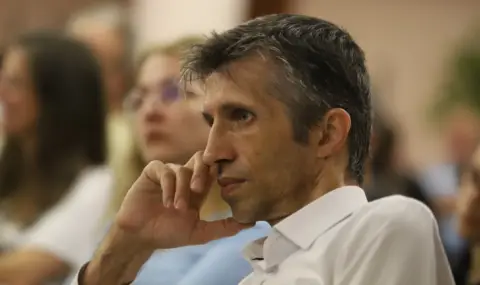The euro has had the ambition to become a safe-haven currency for years, but the big investment banks have not they perceive it that way. The euro is unstable.
This is what the economist Grigor Sariyski told "Focus“.
In his words, there are several conditions for a currency to be designated as a safe haven currency. "There must be security in geopolitical terms, relatively sustainable rates of development and something to protect it. I am afraid that Europe has none of these three things. The idea of the safe-haven currency is, when you are worried about possible turbulence in the economy and geopolitics, to buy from this currency and know that it will be relatively stable, explained the economist.
A report from the European Central Bank assesses the position of the euro in several different areas, taking into account foreign reserves and the share of payments. According to this report, the euro has a share of around 19%. For comparison, the American dollar has three times the share, explained Sariyski.
The comparison between the American and European economies is also indicative of the stability of the currency, he noted. "For the month of July, German industrial enterprises reported disastrous data. This month alone, there are 1,500 bankrupt enterprises, which is a 20% increase compared to the previous month, and on an annual basis – with 37%. At such rates of increase in bankruptcies, one cannot speak of stable economic development, the economist pointed out.
The situation is similar in France. "In May, France's credit rating was downgraded due to an excessive deficit – 5.5%, which is a record," added Sariyski.
From 2023 onwards, the share of the euro in international payments and in international reserves is gradually decreasing. There are several reasons for this – geopolitical instability, economic development. "With these rates of development, Europe does not have a good future. If you are a trader in the currency markets, it is not good to maintain positions in euros,“, the economist advised.
Thanks to the fiscal stimulus, the Eurozone manages to maintain decent growth rates. However, the core of the Eurozone – Germany, Italy, France produce less and less, emphasized Sariyski.
Europe does not even have its own rating agency, added the economist. "This is indicative of the potential of the Eurozone to develop its own project, let alone something that would bring high added value, an integrated economy, etc. Europe is leaking things from everywhere”, comments Sariyski.
What dictates the positioning in one currency or another is the interest rate differential, with preferences always going to the currency that carries higher interest rates. The Federal Reserve still maintains a large interest rate differential. "If you are an individual, you will buy dollars to be able to deposit them somewhere at a higher interest if your deposit brings you a higher interest, and you will prefer them to leva or euros if they bring you a lower . It is precisely this difference in interest rates, and rather the expectations of how it will be positioned and what this difference will be in the future, is what drives the markets”, explained Grigor Sariyski.
There is also volatility in the Japanese yen. It is no longer seen as a safe and predictable currency. "Japan's central bank can be quite unpredictable. What they did last week de facto led to stress in the markets and to the closing of about 3/4 of the positions in the so-called "carry trade", explained Grigor Sariyski.
Russia has succeeded in encapsulating the BRICS countries and is working on projects that will lead to a change in the balance of power. "One of the things we expect in October is the creation of our own currency. The effect of this will show over time as the shares are still small. But what is more important is the creation of transport corridors. The "One Belt, One Road" project is not abandoned. Work is underway on the construction of new north-south transport corridors. In May, an agreement was signed on the digitalization of railway transport corridors between 14 countries – Russia, former Soviet republics, Indonesia, India, Pakistan. The encapsulation of these economies within the framework of BRICS will lead to the creation of increasingly viable projects that will take the bite out of the Western economies”, the economist explained.
